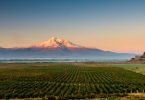Ecotourism in Vietnam is a recent hot topic in the Southeast Asian nation. On September 26, a seminar on developing ecoutourism with biodiversity conservation was held. The seminar happened in the Central Highlands province of Lam Dong.
The event was organised by USAID, the Management Board for Forestry Projects of the Department of Forestry under the Ministry of Agriculture and Rural Development (MARD), and the World Wide Fund for Nature in Vietnam (WWF Vietnam) jointly.
Trieu Van Luc, Deputy Director of the Department of Forestry, emphasized the significant role of Vietnam’s extensive forest ecosystems, covering 42.2% of the country’s natural area, in supporting the national economy and the livelihoods of over 25 million people, particularly ethnic minority communities with strong cultural ties to the forests. He highlighted the vast potential for developing diverse values from these forest ecosystems.
With assistance from international and non-governmental organizations, the Vietnamese government has placed particular emphasis on and allocated resources towards safeguarding forest life and advancing biodiversity conservation in response to the challenges and risks posed to biodiversity.
Luc mentioned that numerous tourist activities and excursions in forests and national parks have been established, primarily for sightseeing and wildlife observation. These initiatives play a role in generating income and enhancing the well-being of local residents, with a particular focus on those residing in “buffer zones.”
Why Ecotourism in Vietnam?
Experts believe that ecotourism has the potential to generate revenue for forest reserves and support biodiversity conservation efforts. Simultaneously, it can serve as a source of income for local communities in Vietnam with the help of ever existing ecotourism destinations in Vietnam.
Ecotourism is a sustainable form of tourism that revolves around safeguarding the environment, preserving local cultures, and securing a better future for both. It emphasizes responsible travel practices that minimize negative impacts on natural ecosystems and indigenous traditions while actively contributing to their preservation. In essence, ecotourism seeks to harmonize tourism with the long-term well-being of the planet and its inhabitants.
Vietnam has a total of 167 special-use forests, comprising 34 national parks, 56 nature reserves, 14 areas dedicated to species and habitat conservation, as well as 54 landscape protection areas and research forests managed by nine scientific units.
Njem Golf na Ndịda Ọwụwa Anyanwụ Eshia

Iji na-adọta ndị ọzọ anụ ụlọ na mba ọzọ ọbịa, ugwu ọdụ ụgbọ mmiri obodo Hai Phong in Vietnam na-elekwasị anya n'ịgbasa njem gọlfụ dịka otu n'ime ngwa ahịa njem nlegharị anya bara uru.
Tran Thi Hoang Mai, the Director of the local Department of Culture and Sports, states that around 3,000 people are involved in golf in the city. Among them, a notable portion consists of foreigners from Japan, South Korea, and China























